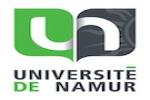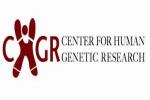NOVELTIES
The Agency for Toxic Substances and Disease Registry (ATSDR), based in Atlanta, Georgia, is a federal public health agency of the U.S. Department of Health and Human Services. ATSDR serves the public by using the best science, taking responsive public health actions, and providing trusted health information to prevent harmful exposures and diseases related to toxic substances. Registration not required.
Click here for more informationsPublished on 2015-05-12 07:16:31

Add to my favorites
Remove from my favorites
a global community where researchers connect
Category: Biomedical communities
ResearcherID provides a solution to the author ambiguity problem within the scholarly research community. Each member is assigned a unique identifier to enable researchers to manage their publication lists, track their times cited counts and h-index, identify potential collaborators and avoid author misidentification. In addition, your ResearcherID information integrates with the Web of Science and is ORCID compliant, allowing you to claim and showcase your publications from a single one account. Search the registry to find collaborators, review publication lists and explore how research is used around the world! Registration required.
Click here for more informationsPublished on 2015-05-06 06:20:23
JANE, the Journal/Author Name Estimator, is built on a database of millions of Medline records. Given an article title or abstract, JANE suggests related journals, authors or articles. It is useful to pinpoint journals closely aligned with our research. It is useful also to editors to find potential peer reviewers. Registration not required.
Click here for more informationsPublished on 2015-04-21 11:00:02

Add to my favorites
Remove from my favorites
Category: PhD programs and Masters
Subcategories: PhD program , Europe
The CRG International PhD programme in Barcelona aims to provide graduate students from all over the world with the possibility for training and doing research in the attractive scientific environment of the CRG, which is part of the Barcelona Biomedical Research Park (PRBB). Our resources, facilities, and staff provide the necessary technical support for the research projects and promote high quality training for graduate students. Registration not required.
Click here for more informationsPublished on 2015-03-23 12:21:32
IRB Barcelona is a world-class research centre devoted to understanding fundamental questions about human health and disease. IRB Barcelona is not a University and cannot grant PhD degrees. Registration not required.
Click here for more informationsPublished on 2015-03-23 12:13:19
The Boehringer Ingelheim Fonds awards PhD fellowships to outstanding junior scientists (max. age: 27 years) who wish to pursue an ambitious PhD project of approximately 3 years in basic biomedical research in an internationally leading laboratory. Registration not required.
Click here for more informationsPublished on 2015-03-23 12:07:02

Add to my favorites
Remove from my favorites
Category: PhD programs and Masters
Subcategories: PhD program , Europe
International PhD program in Basic and Applied Molecular Life Sciences: Biochemistry, Cell Biology, Molecular Biology, Genetics and Evolution Plant Biology
Click here for more informationsPublished on 2015-03-23 11:58:00
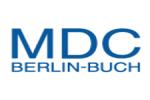
Add to my favorites
Remove from my favorites
Category: PhD programs and Masters
Subcategories: PhD program , Europe
The International PhD Programme at the MDC was established in 2003 as collaboration of the Max Delbrück Centre for Molecular Medicine (MDC) and the Humboldt-Universität zu Berlin (HU). The graduate school currently supports 350 PhD students, one third of whom come from abroad. Research areas include cancer biology, immunology, cardiovascular research, metabolic research, developmental biology, medical systems biology, bioinformatics, structural biology and molecular neurobiology. Registration not required.
Click here for more informationsPublished on 2015-03-23 11:49:17
The web site presents a collection of normal and pathological digitalized histological sections that can be easily navigated and observed at various magnifications Registration not required.
Click here for more informationsPublished on 2015-03-19 04:29:35
Find A PhD is a guide to current postgraduate research and PhD studentships. We list details of graduate research programmes from universities throughout the UK, Europe and further afield. New PhDs are added every day, and our listings include PhD Research Projects, PhD Research Programmes, Four Year PhD Programmes, International PhD Programmes and Clinical PhD Programmes. Registration not required.
Click here for more informationsPublished on 2015-03-16 05:22:37

Add to my favorites
Remove from my favorites
boosting impact for researchers
Category: Biomedical communities
Loop is an open, cross-platform network for researchers and academics, allowing for the discoverability of researchers and their work across multiple domains. Loop is committed to enhancing the academic reputation and impact of researchers within an international community, enabling them to stay up-to-date with new research and connecting them to their peers. Registration required.
Click here for more informationsPublished on 2015-03-09 02:34:52

Add to my favorites
Remove from my favorites
connecting research and researchers
Category: Biomedical communities
As researchers and scholars, you face the ongoing challenge of distinguishing your research activities from those of others with similar names. You need to be able to easily and uniquely attach your identity to research objects such as datasets, equipment, articles, media stories, citations, experiments, patents, and notebooks. As you collaborate across disciplines, institutions and borders, you must interact with an increasing number and diversity of research information systems. Entering data over and over again can be time-consuming, and often frustrating. ORCID is an open, non-profit, community-driven effort to create and maintain a registry of unique researcher identifiers and a transparent method of linking research activities and outputs to these identifiers. ORCID is unique in its ability to reach across disciplines, research sectors and national boundaries. It is a hub that connects researchers and research through the embedding of ORCID identifiers in key workflows, such as research profile maintenance, manuscript submissions, grant applications, and patent applications. ORCID provides two core functions: (1) a registry to obtain a unique identifier and manage a record of activities, and (2) APIs that support system-to-system communication and authentication. ORCID makes its code available under an open source license, and will post an annual public data file under a CC0 waiver for free download. The ORCID Registry is available free of charge to individuals, who may obtain an ORCID identifier, manage their record of activities, and search for others in the Registry. Organizations may become members to link their records to ORCID identifiers, to update ORCID records, to receive updates from ORCID, and to register their employees and students for ORCID identifiers. ORCID records hold non-sensitive information such as name, email, organization and research activities. ORCID understands the fundamental need for individuals to control how their data are shared, and provides tools to manage data privacy. We take steps to protect your information, consistent with the principles set forth in our Privacy Policy, which are intended to comply with the Safe Harbor Principles issued by the U.S. Department of Commerce. Registration required.
Click here for more informationsPublished on 2015-03-09 02:26:21
Google Scholar allows users to search for digital or physical copies of articles, whether online or in libraries Google Scholar is relatively quick and easy to use. “Scholarly” searches will appear using the references from “’full-text journal articles, technical reports, preprints, theses, books, and other documents, including selected Web pages that are deemed to be “scholarly.’” Because most of Google Scholar's search results link directly to commercial journal articles, a majority of the time users will only be able to access a brief summary of the articles topics, as well as small amounts of important information regarding the article, and possibly have to pay a fee to access the entire article. Google Scholar is as easy to use as with the regular Google web search, especially with the helpfulness of the "advanced search" option, which can automatically narrow search results to a specific journal or article. The most relevant results for the searched keywords will be listed first, in order of the author's ranking, the number of references that are linked to it and their relevance to other scholarly literature, and the ranking of the publication that the journal appears in. Using its "group of" feature, it shows the available links to journal articles. In the 2005 version, this feature provided a link to both subscription-access versions of an article and to free full-text versions of articles; for most of 2006, it provided links to only the publishers' versions. Since December 2006, it has provided links to both published versions and major open access repositories, but still does not cover those posted on individual faculty web pages;[citation needed] access to such self-archived non-subscription versions is now provided by a link to Google, where one can find such open access articles. Through its "cited by" feature, Google Scholar provides access to abstracts of articles that have cited the article being viewed. It is this feature in particular that provides the citation indexing previously only found in Scopus and Web of Knowledge. Through its "Related articles" feature, Google Scholar presents a list of closely related articles, ranked primarily by how similar these articles are to the original result, but also taking into account the relevance of each paper. Registration not required.
Click here for more informationsPublished on 2015-03-05 15:28:59
The International Cell Line Authentication Committee aims to make false or misidentified cell lines more visible, and promote awareness and authentication testing as effective ways to combat the problem. It provides a database listing cell lines that are currently known to be cross-contaminated or misidentified. Registration not required.
Click here for more informationsPublished on 2015-03-01 03:34:02
PLINK is a popular and computationally efficient software program that offers a comprehensive and well-documented set of automated genome wide association quality control and analysis tools. It is a freely available open source software written in C++, which can be installed on Windows, Mac and Unix machines. The focus of PLINK is purely on analysis of genotype/phenotype data, so there is no support for steps prior to this (e.g. study design and planning, generating genotype or CNV calls from raw data). Through integration with gPLINK and Haploview, there is some support for the subsequent visualization, annotation and storage of results. Registration not required.
Click here for more informationsPublished on 2015-02-15 05:04:57
This tool calculates a set of confidence intervals for the entered binomial trial result - the number of trials and the number of successes. Registration not required.
Click here for more informationsPublished on 2015-02-14 11:38:06
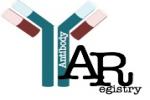
Add to my favorites
Remove from my favorites
Category: Biomedical products search
Subcategories: Antibodies
The Antibody Registry was created to give researchers a way to universally identify antibodies used in in the course of their research. The Antibody Registry assigns unique and persistent identifiers to each antibody so that they can be referenced within publications. Unlike antibody names or catalog numbers, these identifiers only point to a single antibody, so that the actual antibody used in your research research can be identified by humans and search engines. Registration not required.
Click here for more informationsPublished on 2015-02-14 11:27:54
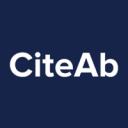
Add to my favorites
Remove from my favorites
Category: Biomedical products search
Subcategories: Antibodies
CiteAb Ltd is a biotechnology company located in Bath, England that offers an antibody search facility. CieAb ranks antibodies by the number of times they have been cited. This allows researchers to easily find antibodies that have been used in peer-reviewed publications and the accompanying citations are listed, so users can check the data contained within the publications. This makes CiteAb a useful resource for identifying antibodies for experiments and also for finding information to demonstrate antibody validation (Helsby et al., BMC Cell Biol 15:6, 2014) Registration not required.
Click here for more informationsPublished on 2015-02-07 04:59:26
ChEMBL, an open-access database, contains more than 5 million interactions between proteins and ligands that have been published in peer-reviewed journals or reported by laboratories and screening centers . Under ChEMBL’s “Ligand Search” tab, you can enter a compound’s SMILES notation in the “List Search” box and click “Fetch Compounds.” On the next page, clicking on the ChEMBL compound identifier under the 2-D drawing takes you to the Compound Report Card page, which includes the “Protein Target Classes” and tables containing the proteins that are predicted to bind with the highest affinity (Nucleic Acids Res, 40:D1100-07,2012). Registration not required.
Click here for more informationsPublished on 2015-02-05 11:55:43
PyClone is a tool for inferring the cellular prevalence of point mutations from deeply sequenced data. It serves as a statistical model for inference of clonal population structures in cancers.The model supports simultaneous analysis of multiple related samples and infers clusters of mutations whose cellular prevalences shift together. Such clusters of mutations can be inferred as mutational genotypes of distinct clonal populations (Roth et al., Nature Meth 11, 396, 2014). Registration required.
Click here for more informationsPublished on 2015-01-29 04:09:51





